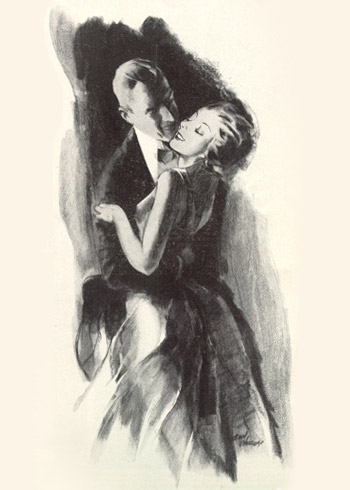Bra podcast
Sveriges mest populära poddar
A Podcast to the Curious – The M.R. James Podcast
Episode 98 – The Nature of the Evidence by May Sinclair
68 min •
27 mars 2024
 M.R. James said that sex had no place in a ghost story. But was he right? This episode we attempt to answer this question and more, as we cover The Nature of the Evidence by May Sinclair, a tale from 1923 about a couple who just want to enjoy their wedding night. Is that too much to ask? Apparently, yes.
M.R. James said that sex had no place in a ghost story. But was he right? This episode we attempt to answer this question and more, as we cover The Nature of the Evidence by May Sinclair, a tale from 1923 about a couple who just want to enjoy their wedding night. Is that too much to ask? Apparently, yes.
Thanks to Debbie Wedge for providing the readings for this episode, and don’t forget to check out Ghostly Encounters, the haunting free interactive event that Debbie is helping organise in Oxford on the 20th April 2024.
Show notes:
- The Nature of the Evidence by May Sinclair (gutenberg.org)
This story, along with the others from May Sinclair’s Uncanny Stories can be read in full at Project Gutenberg. - May Sinclair (maysinclairsociety.com)
Sinclair had a fascinating life. You can see a shortish biography of her here (or go big and read Suzanne Raitt’s 2000 biography). - ‘Some Remarks on Ghost Stories’ by M.R. James (berfrois.com)
M.R. James made his feelings on sex in ghost stories abundantly clear in this article published in The Bookman in 1929. - ‘Ghosts, Treat Them Gently’ by M.R. James (mrjamesarchive.wordpress.com)
James returned to the subject of sex in ghost stories a few years later in this article he wrote for the Evening News in April 1931. TLDR: still not a fan. - The Idealism and Pantheism of May Sinclair (Panpsycast Philosophy Podcast)
This story is steeped in the concepts of Idealism, a school of philosophical thought for which May Sinclair was passionate advocate.
- Matrimonial Causes Act, 1923 (womenslegallandmarks.com)
This story touches on the thorny issue of divorce in the United Kingdom in the 1920s. In the same year this story was published, a landmark piece of legislation was passed that leveled the playing field between women and men in the area of divorce. - The Lipstick Revolution of the 1920s (britishnewspaperarchive.co.uk)
The character of Pauline in this story seems to reflect a sea-change in attitudes towards female beauty during this period, characterised by growing social acceptability of wearing lipstick. In this story it carries a hint of Pauline’s self-expression and sexual freedom. - St. Paul on sex and marriage (mit.edu)
Pauline’s name may be inspired by the words of St. Paul, who had some choice things to say on the matter of sex, marriage and in particular unmarried women who ‘cannot control themselves’! - Stages of (Victorian Mourning) and Fifty Shades of Purple (lilacandbombazine.wordpress.com)
Pauline should have probably realised that Marston was not yet over the death of his first wife when she finds that their marital bedroom is decorated almost complete in purple, the traditional colour of extended mourning. - The Lost Ancient Practice of Communal Sleeping (bbc.com)
The fact that Marston and Pauline have separate bedrooms may seem strange to modern sensibilities, but for a long time it was the norm for a husband and wife to sleep in separate beds. Only after the 1950’s did it begin to be regarded as a sign that something was wrong in a marriage. - The Victorian Cult of Child Innocence (psychlit271.blogspot.com)
Marston’s seeming obsession with the ‘childlike innocence’ of his young bride Rosamund reflects Victorian attitudes towards children and the preservation of their ‘innocent’ state. Well, the children of the upper classes anyway. The children of the poor were not regarded quite so delicately! - May Sinclair and Psychology (maysinclairsociety.com)
The psychoanalysis of Freud and Jung was another huge influence on May. In February 1923, Sinclair delivered a speech to the Aristotelian Society that’s highly suggestive of this story: did Marston and Rosamund’s desire elevate them all the way to May’s “Ultimate Consciousness”?
- ‘We tried to have sex with ghosts and here’s what happened’ (buzzfeed.com)
Is having sex with ghosts a real thing? Absolutely not. But admit it, you still want to click the link to the above Buzzfeed article, don’t you? Go on, we won’t tell anyone. - Blue Juice (imdb.com)
It would be deeply remiss of us if we didn’t point out the similarities between this story and the 1995 British comedy/surfing movie Blue Juice, with Catherine Zeta-Jones and Sean Pertwee (although Marston probably wishes he was in Ghost).
Förekommer på
00:00
-00:00